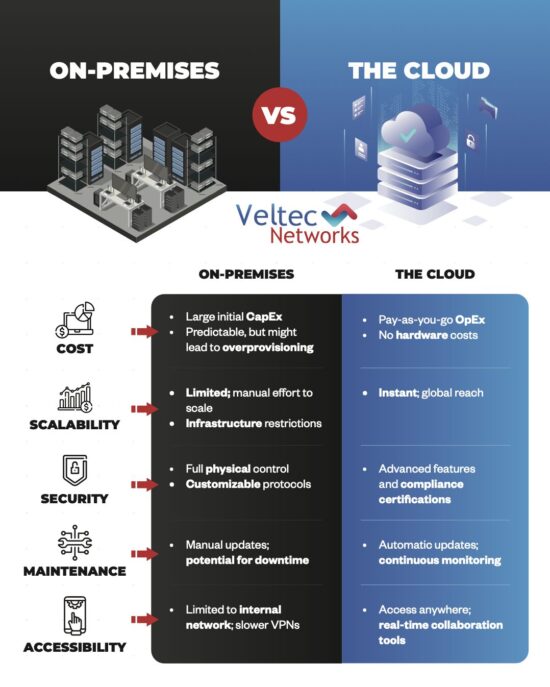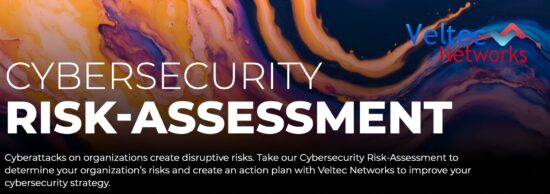Keep Your Remote Workers Secure
Remote work is just a part of doing business these days. Thanks to the cloud, accessing work data from the home office, on the road, or elsewhere is easier than ever. But is it secure?
When you picture an office, you likely still tend to think of the ‘90s standard – cubicles, water cooler, etc. But that’s simply not what the modern workplace looks like anymore.
Think about it – does your entire staff work in your office?
Probably not.
Businesses are hiring more and more remote workers – in fact, it’s the way half the country works every day. So many staff members that work from home, outside of the business’ city of operation, and even much further away.
Why would so many businesses be transitioning to this workplace model? Isn’t it undeniably better to have everyone in one place, under one roof?
Not necessarily.
Why Do People Prefer To Work Remotely?
More than anything else, it’s convenient:
- Remote workers don’t have to spend time commuting to and from work each day, the extent of which can often be a deal-breaker for potential hires when considering a job.
- Employers don’t have to invest in the space or resources for their entire staff – that means saving money on office space, hardware, break room amenities and more.
- Businesses get access to a skillset and personnel base far outside of what you could call the “commute radius”; whether it’s 30 minutes from the office or two hours, at a certain point you wouldn’t be able to hire someone you’d like to because they live too far away for it to be feasible.
Despite all these benefits, you still might have your doubts –especially when it comes to one key concern – security.
What’s The #1 Problem With Remote Work?
With so many employees running around all over the place, working from a laptop or smartphone, how can you be sure that your data is completely secure?
The 2018 Mobile Security Report uncovered that more than half of polled CIOs (52 percent in the US) believe that mobile workers in their employ had been hacked in the last 12 months.
Furthermore, an even higher portion of respondents (67 percent) suspect that WiFi-related security incidents occurred at cafes and coffee shops, and nearly half of the CIOs surveyed said Bring Your Own Device policies may have increased security risks
Your data should be protected by a range of industry-leading security solutions, best practices, and expert cybersecurity personnel.
And, if you must comply with state or government regulations, the right IT security solutions will make sure your technology and your users are in full compliance.
If you have decided to allow workers to use their own devices while working out of the office then you need to have the right security solutions and practices put in place…
3 Tips To Keep Your Remote Workers Secure
1. Manage Your Passwords.
Passwords remain a go-to tool for protecting your data, applications, and workstations.
They also remain a common cybersecurity weakness because of the careless way employees go about trying to remember their login information. Weak passwords are easy to compromise, and if that’s all that stands between your data in the cloud and in applications, you could be at serious risk for a catastrophic breach.
Unfortunately, many users often opt for a weak password that’s easy to remember, rather than a strong one they’ll forget.
The good news is that there is a way to get the best of both worlds.
One of the best ways to maintain complex passwords is with a password manager. Password managers are the key to keeping your passwords secure.
A password manager generates, keeps track of and retrieves complex and long passwords for you to protect your vital online information. It also remembers your PINS, credit card numbers and three-digit CVV codes if you choose this option.
Plus, it provides answers to security questions for you. All of this is done with strong encryption that makes it difficult for hackers to decipher.
The most popular Password Manager available today is likely LastPass. This solution consistently ranks high against its competitors‘ thanks to its free, premium and family versions, a range of features, and pedigree of quality. More than 13.5 million people and 43,000 businesses use LastPass and its range of features:
- This manager creates long, randomized passwords that protect against hacking
- It will sync your passwords with all of your devices, including your smartphone
- This will save you time when shopping online by completing forms with my address and phone number
- It also provides two-factor authentication using your mobile device
- Storage for unlimited logins
- Automatic form completion
- Biometrics (finger and thumbprint reading) for access
2. Use A VPN.
One of the most proven techniques to make sure your data is safe is to use a virtual private network (VPN), which will give you back control over how you’re identified online. A VPN creates a secure tunnel for your data to transit the Internet, using a network of private servers.
When you use a VPN, your data is encrypted, or hidden, as it moves from your device to the VPN and then continues onto the Internet through what’s called an exit node. A VPN creates the appearance that your data is coming from the VPN server, not from your device.
That makes it harder for an attacker to identify you as the source of the data – no matter whether you’re on your mobile device’s data connection, or using an unsecured retail Wi-Fi network while you’re in line for coffee. Even if attackers can intercept your data, the encryption means the attackers can’t understand your data or use it to their advantage.
When you put your data out to the VPN server, it exits back out to the public internet. If the site you’re visiting has HTTPS to keep the connection safe, you are still secure.
3. Implement a Mobile Device Management Policy
This type of comprehensive policy dictates how your employees can use their personal devices for work purposes, dictating which security apps should be installed, and what best practices need to be followed.
An effective MDM policy should also instill safe and secure practices for employees that use personal devices for business purposes. Key considerations include:
- Decide When And How Mobile Devices Will Be Used.
Integrated into your internal network, these devices can be used to access, store, transmit, and receive business data.You’ll need to have policies in place to regulate how employees use their devices to interact with sensitive data. Take the time to consider the risks associated with mobile device use, such as the potential for devices containing business data to be lost or stolen, infected with malware, or the potential for accidental disclosure of confidential information through sharing a device with a family member or connecting to an unsecured wireless network. - Consider How Mobile Device Use Can Pose Risks To Your Data.
A risk analysis will help you identify vulnerabilities in your security infrastructure, and help you determine the safeguards, policies, and procedures you’ll need to have in place.Whether the devices in question are personal devices or provided by your St. Louis IT company, you will still need to have a clear idea of how they’re being used to communicate with your internal network and systems.Assessments should be conducted periodically, especially after a new device is granted access, a device is lost or stolen, or a security breach is suspected.
Should You Hire Remote Workers?
Maybe – it depends if you can handle a cloud deployment (including security) on your own.
You might be able to, if you have the time and expertise – but if not?
Then you need to partner with an IT company that can deliver a responsive and reliable cloud solution for your staff. They can make the cloud work for you and your remote workers because they have the experience working with those solutions needed to do it right.
Like this article? Check out the following blogs to learn more:
How Are Face and Touch Recognition Changing iCloud Access?






